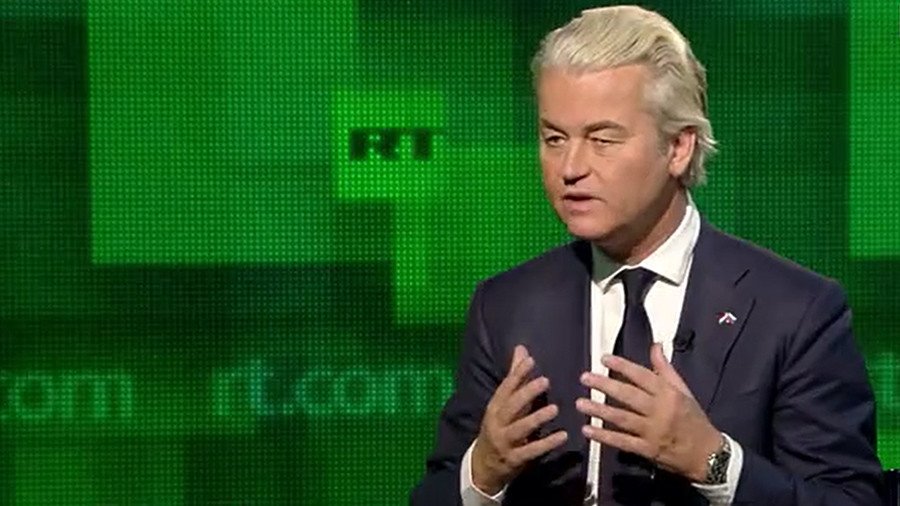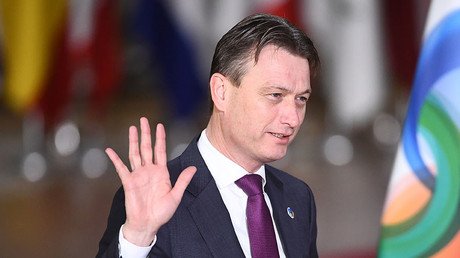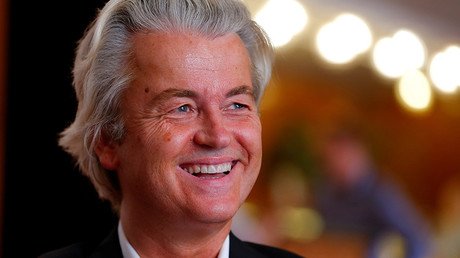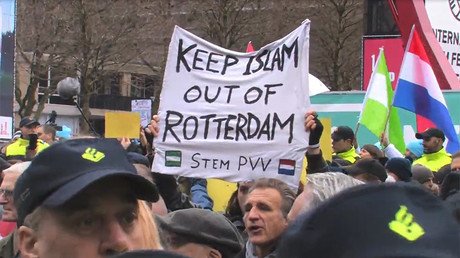Wilders: I criticize Putin’s policies, but applaud the way he stands for Russian people

Geert Wilders, a Dutch politician and leader of the anti-immigration Party for Freedom, says European nations lack the kind of leadership he sees in the US and Russia, where the interests of their own people are prioritized.
Wilders, who has become a polarizing figure in Europe over his anti-EU and anti-Islam platform, is currently visiting Russia in his capacity as a member of the Dutch Parliament. RT caught up with him for an exclusive interview. Wilder says while he didn’t like a lot of the policies of Russian President Vladimir Putin, but he would like to see a nationalist stance like Putin's in other European nations.
“Vladimir Putin is a leader, whatever you think of him. I criticize a lot of his policies. But I applaud him as I applaud Mr. Trump for being leaders, who are standing there on behalf of the Russian and the American people,” he said. “We lack that kind of leadership in Europe. Europe, being a non-entity, countries combined – almost 30 in our days and still trying to enlarge – where there is a total lack of sense and identity. Therefore I believe Mr. Trump and Mr. Putin are more favorable than our own leaders.”
Wilders is a strong proponent of nationalism and believes the EU has gone a wrong way when it upgraded from an economic union to a political one, stripping national governments of some of their authority. The resulting erosion of control over things like budget or immigration policies to a group of unelected members of the European Commission has proven to be disastrous and a potential existential threat to EU members, he believes. He seeks to steer the Netherlands out of the European Union, the way the UK did with Brexit, but he has yet to win public support for such a dramatic move.
The politician is in Russia with the goal of building bridges in an atmosphere of animosity between Moscow and the West, which he described as dangerous and often irrational.
Russia is “a country that we share a lot with, that we have a lot of common interests with, that I don’t consider as an enemy. There is a lot of enmity, too much enmity. Russia is not our enemy. The Russian people [are] certainly not our enemy. We should understand each other better, work together and not talk in Russophobia or in war time talk,” Wilders said.
He cited a recent example of Halbe Zijlstra, who had to resign as Dutch foreign minister instead of conducting a visit to Russia – a first for a person in that office in several years – after he was caught lying about Putin’s alleged expansionist ambitions. Wilders, whose party pressured Zijlstra to step down, called the incident a disgrace.
“He had to step down because it was all lies, it was all Russophobia and fake news. That’s not how it will work. If we need Russia and America as allies, we should engage in responsible and adult conversation.”
Wilders believes that a lack of proper conversation is, to a great degree, responsible for what some journalists in the West perceive as Russia starting an arms race. He arrived in Moscow just as Putin announced the development of several weapon systems meant to counter America’s growing anti-ballistic missile capabilities and to ensure Russia’s continued nuclear deterrence against the US.
Putin’s speech “was all about new weaponry and capabilities. I understand, and NATO would do exactly the same. This is how people react. But we should start talking about intentions. If you know anything about the world of security and intelligence, you know that there are two things [that are] important. It’s the military capabilities, but also the intentions. You can have small capabilities, but with wrong intentions you can do a lot of harm. You can have a lot of capabilities, but with good intentions you can do almost no harm,” Wilders said.
The interview touched on many other issues concerning the Netherlands, the EU, Russia and world affairs, ranging from a cultural threat to Europe that Wilders sees in Islam, to his ambition of becoming the Dutch prime minister one day, to the mistakes that he believes Russia and the West have made when building their relationship.















